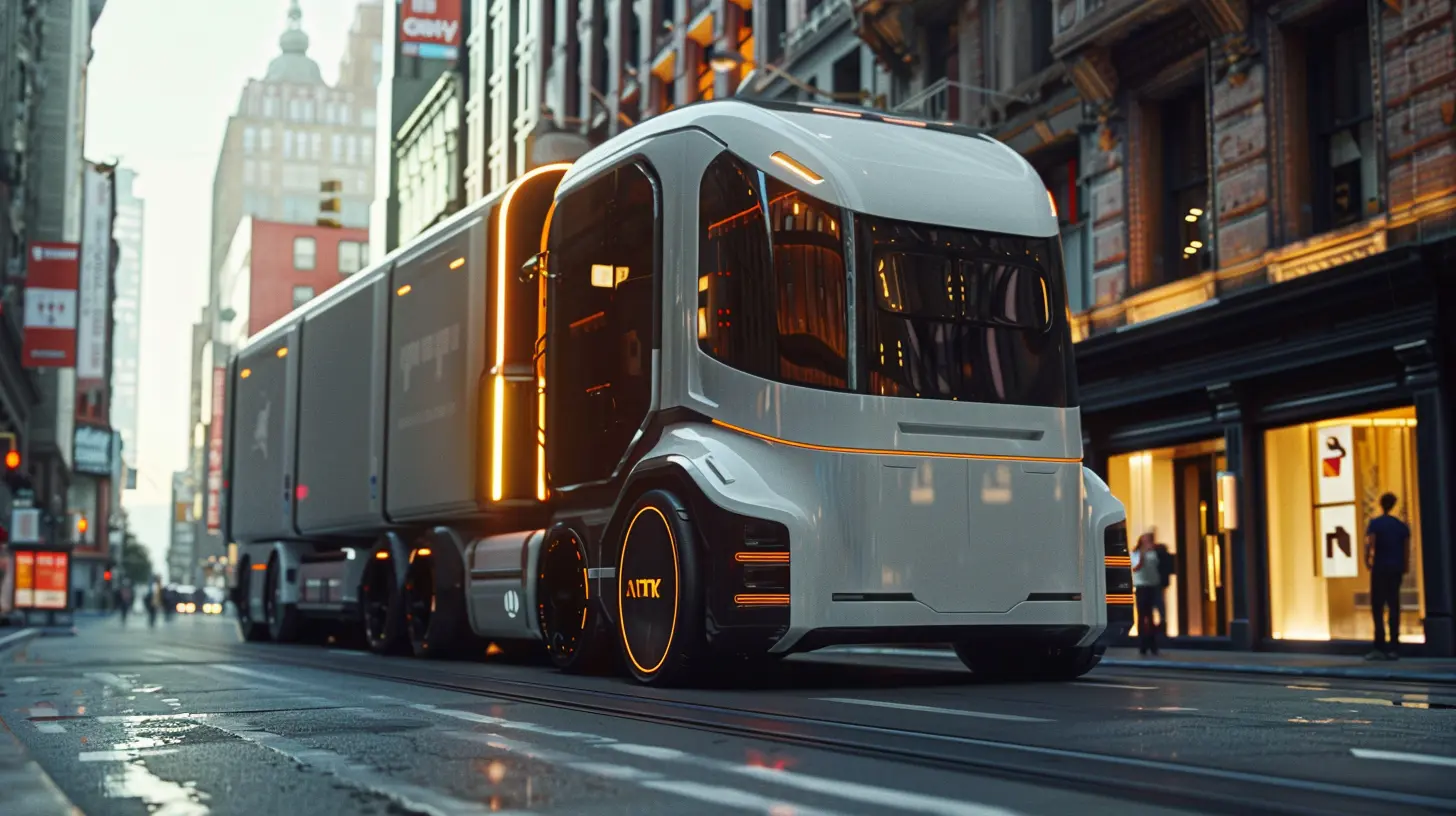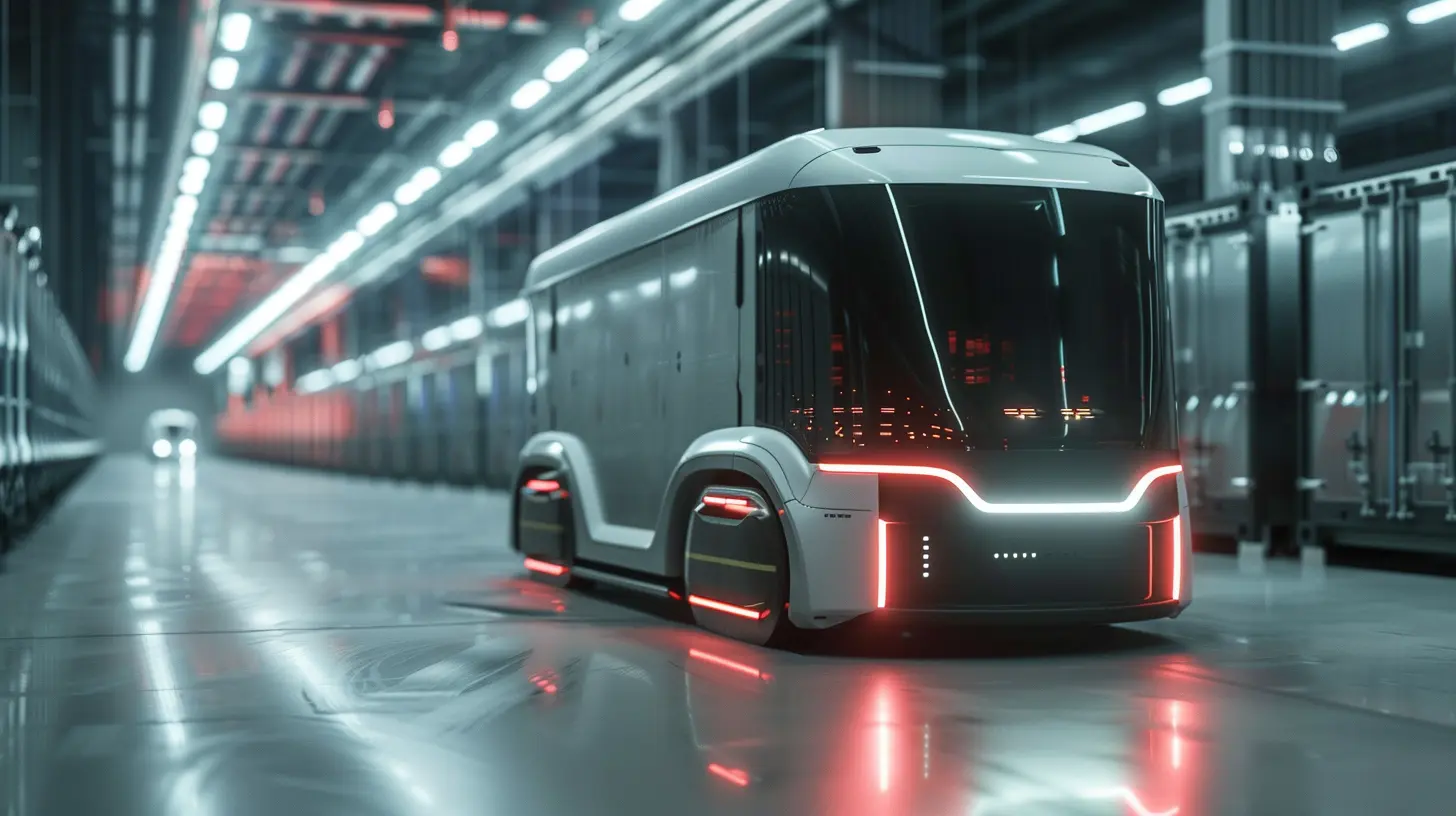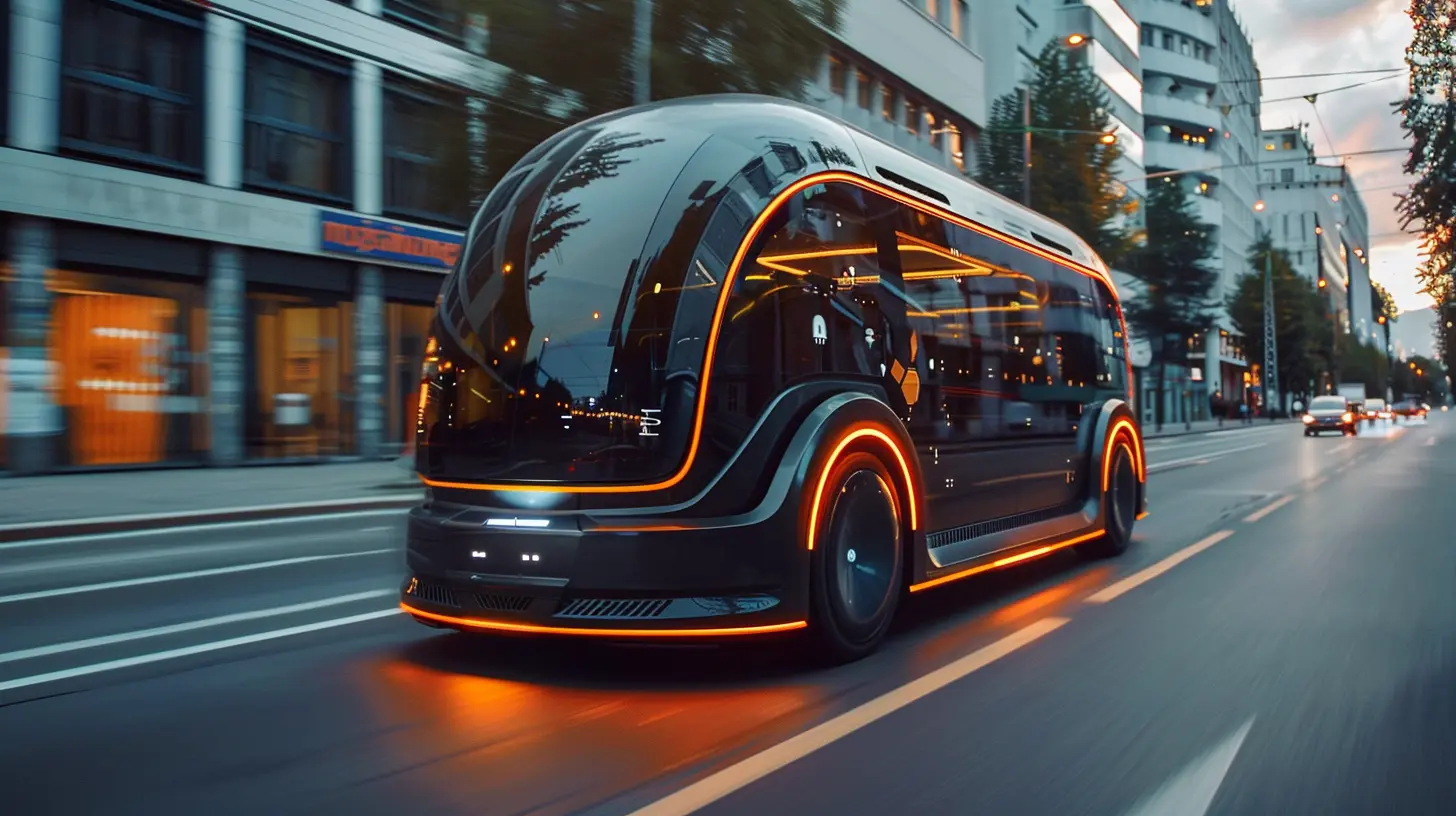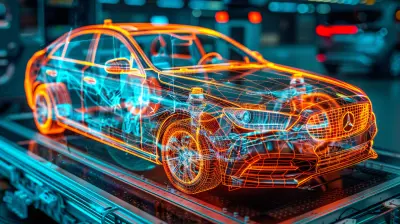The Impact of Autonomous Vehicles on the Freight Industry
17 November 2024
The world of transportation is undergoing a seismic shift, and it’s all thanks to autonomous vehicles (AVs). These self-driving wonders aren’t just catching the eye of car enthusiasts; they’re making waves in industries that rely heavily on transportation, particularly freight. But what exactly is the impact of autonomous vehicles on the freight industry? How will these driverless trucks reshape the way goods are transported across the globe?
It’s a fascinating and complex topic, and we’re going to dive deep into it. By the end of this article, you’ll have a clear understanding of how AV technology is transforming freight, why it matters, and what the future holds. So buckle up (pun intended), and let’s hit the road!
What Are Autonomous Vehicles?
Before we delve into the freight industry, let’s clarify what autonomous vehicles are. In simple terms, autonomous vehicles are self-driving vehicles that are capable of sensing their environment and operating without human intervention. The technology involved includes a combination of sensors, cameras, radar, and artificial intelligence (AI) algorithms. These machines are designed to navigate roads, avoid obstacles, and make real-time decisions, all while keeping passengers or cargo safe.When we talk about AVs in the freight industry, we’re primarily referring to autonomous trucks—massive, long-haul vehicles that can operate without a human driver behind the wheel.
The Freight Industry: A Quick Snapshot
The freight industry plays a crucial role in the global economy. It’s responsible for transporting goods from manufacturers to consumers, both domestically and internationally. This industry encompasses various modes of transport, including trucks, ships, trains, and planes. But here’s the thing—trucking is the backbone of freight. In the U.S. alone, trucks move more than 70% of all freight, and the industry employs millions of drivers.However, the trucking industry isn’t without its challenges. Labor shortages, high operational costs, and safety concerns frequently plague the sector. And here’s where autonomous vehicles come into play. They offer a potential solution to many of these issues, and they’re already starting to shake things up.
How Autonomous Vehicles Are Disrupting the Freight Industry
Now let’s get to the meat of the topic—how AVs are impacting the freight industry.1. Addressing the Driver Shortage
One of the most significant issues in the freight industry is the shortage of truck drivers. According to the American Trucking Associations (ATA), the industry was short over 60,000 drivers in 2019, and that number is expected to grow. This shortage is problematic because it leads to delayed deliveries, increased costs, and strained supply chains.Autonomous trucks could be the answer to this problem. By removing the need for a human driver, these vehicles can keep goods moving even in the face of labor shortages. While we’re not saying that all truck drivers will be replaced (more on that later), AVs can fill in the gaps, especially for long-haul routes that are difficult to staff.
2. Improved Safety
Let’s be real—driving a truck is tough. Fatigue, distractions, and human error are common causes of accidents in the trucking industry. In fact, according to the Federal Motor Carrier Safety Administration (FMCSA), human error accounts for around 87% of truck accidents.Autonomous trucks, on the other hand, don’t get tired or distracted. They’re designed to follow traffic laws, maintain safe following distances, and react to sudden changes on the road much faster than a human driver could. The result? Fewer accidents and a safer transportation system overall.
Of course, AVs aren’t perfect, and there are still concerns about how they’ll handle complex or unpredictable situations. But as the technology continues to advance, we can expect even safer operations in the future.
3. Cost Savings
Running a trucking business is expensive. From fuel costs to driver wages to maintenance, it all adds up. Autonomous vehicles have the potential to reduce these costs in several ways.- Fuel Efficiency: Autonomous trucks are designed to drive in the most fuel-efficient manner possible, reducing unnecessary acceleration and braking. This can lead to significant fuel savings over time.
- Lower Labor Costs: Since AVs don’t require a driver, companies can save on wages, benefits, and other labor-related expenses. However, it’s worth noting that some human oversight may still be required (more on that later).
- Reduced Downtime: Human drivers need rest, but autonomous trucks can operate around the clock, increasing productivity and reducing delivery times. This nonstop operation can lead to faster supply chains and ultimately lower costs.
4. Environmental Impact
Sustainability is a hot topic across all industries, and freight is no exception. The trucking industry is a significant contributor to greenhouse gas emissions, and there's growing pressure to reduce its environmental footprint. Autonomous vehicles can help here too.As mentioned earlier, AVs are designed to maximize fuel efficiency, which means they produce fewer emissions than traditional trucks. In the future, we may even see electric autonomous trucks that are completely free of emissions, further reducing the environmental impact of freight transportation.
5. Logistics Optimization
Autonomous vehicles aren’t just about the trucks themselves; they’re also about improving the entire logistics ecosystem. With advanced AI and machine-learning algorithms, autonomous trucks can optimize routes in real-time, avoiding traffic, road hazards, and construction zones. This can lead to faster deliveries and reduced wear and tear on vehicles.Moreover, autonomous trucks can integrate seamlessly with warehouse management systems, creating a more streamlined and efficient supply chain. Imagine a future where goods are automatically loaded onto a truck, delivered to a warehouse, and unloaded without any human intervention. That’s the level of optimization we’re talking about.
Challenges and Concerns
While the benefits of autonomous vehicles in the freight industry are clear, it’s not all sunshine and rainbows. There are several challenges and concerns that need to be addressed before AVs become mainstream.1. Regulatory Hurdles
The legal framework surrounding autonomous vehicles is still in its infancy. While some states and countries are moving forward with regulations that allow AV testing, there’s no universal standard for how these vehicles should operate. This lack of regulation could slow down the adoption of AVs in the freight industry.Moreover, liability is a major concern. If an autonomous truck is involved in an accident, who’s at fault? Is it the company that owns the truck? The manufacturer of the AV technology? Or the software developer? These are questions that lawmakers and regulators will need to answer.
2. Job Displacement
Let’s address the elephant in the room—what happens to truck drivers when autonomous vehicles take over? While AVs can help alleviate the driver shortage, there’s no denying that they could also lead to job displacement.However, it’s important to remember that the transition to autonomous trucks won’t happen overnight. It’s likely that we’ll see a gradual shift, with human drivers still playing a role in local and short-haul deliveries. Additionally, new jobs could emerge in areas like AV maintenance, oversight, and remote monitoring.
3. Technological Limitations
While AV technology has come a long way, it’s not perfect. Autonomous trucks still struggle with complex driving scenarios, such as navigating crowded urban areas, dealing with inclement weather, or handling unpredictable road conditions. Until these issues are fully resolved, human oversight will likely be required in certain situations.4. Public Perception
Finally, there’s the issue of public perception. Many people are still wary of autonomous vehicles, particularly when it comes to safety. Gaining public trust will be crucial for the widespread adoption of AVs in the freight industry.The Future of Autonomous Freight
So, what does the future hold for autonomous vehicles in the freight industry? While it’s impossible to predict with certainty, it’s clear that AVs will play a significant role in shaping the future of logistics and transportation.In the near term, we can expect to see more autonomous trucks on highways, handling long-haul routes while human drivers take care of last-mile deliveries. Over time, as the technology improves and regulatory frameworks catch up, fully autonomous freight networks could become the norm.
One thing’s for sure—the freight industry is on the cusp of a revolution, and autonomous vehicles are leading the charge.
Conclusion
The impact of autonomous vehicles on the freight industry is undeniable. From addressing the driver shortage to improving safety and reducing costs, AVs offer numerous benefits that could transform the way goods are transported. However, challenges like regulatory hurdles, job displacement, and technological limitations must be addressed before we see widespread adoption.As we look to the future, one thing is certain: autonomous vehicles are here to stay, and they’re going to change the freight industry in ways we can only begin to imagine. Ready or not, the future of freight is autonomous!
all images in this post were generated using AI tools
Category:
Autonomous VehiclesAuthor:

John Peterson
Discussion
rate this article
19 comments
Pierce Martin
Autonomous vehicles have the potential to revolutionize the freight industry by increasing efficiency and reducing labor costs. With advancements in AI and logistics algorithms, these vehicles can optimize routes and minimize delays. However, regulatory challenges and safety concerns must be addressed to ensure a smooth transition to this technology.
April 3, 2025 at 8:41 PM

John Peterson
Thank you for your insightful comment! You're right—while autonomous vehicles offer significant advancements in efficiency and cost savings, addressing regulatory and safety challenges is crucial for their successful integration into the freight industry.
Jaxon McCool
Self-driving trucks: cruising into the future!
January 31, 2025 at 4:12 AM

John Peterson
Thank you! Self-driving trucks promise to revolutionize freight by improving efficiency and safety. Exciting times ahead!
Serenity Curry
In metal chariots unbound, freight whispers of future skies—autonomous dreams weave efficiency's delicate tapestry.
January 23, 2025 at 12:47 PM

John Peterson
Thank you! Your poetic imagery beautifully captures the transformative potential of autonomous vehicles in freight. Exciting times ahead!
Storm McGillivray
Great insights! The potential of autonomous vehicles to revolutionize the freight industry is truly exciting. Looking forward to seeing how these innovations enhance efficiency and safety in logistics. Keep up the great work!
January 17, 2025 at 9:32 PM

John Peterson
Thank you for your encouraging words! I’m excited about the potential impact of autonomous vehicles on logistics as well. Stay tuned for more updates!
Tamara Ross
Great insights! Autonomous vehicles are poised to revolutionize the freight industry significantly.
January 10, 2025 at 11:34 AM

John Peterson
Thank you! I agree—autonomous vehicles have the potential to greatly enhance efficiency and safety in the freight industry.
Joy Middleton
Autonomous vehicles are revolutionizing the freight industry, enhancing efficiency, reducing costs, and addressing driver shortages. Embracing this technology is essential for staying competitive in today's market.
January 5, 2025 at 4:03 AM

John Peterson
Thank you for highlighting the transformative role of autonomous vehicles in the freight industry. Embracing this technology is indeed crucial for future competitiveness.
Heidi Montgomery
Great insights on the potential of autonomous vehicles in the freight sector! It's crucial to consider not only the operational efficiencies but also the challenges, such as regulatory hurdles and job displacement. Exploring collaborative solutions involving technology stakeholders and the workforce could help ensure a smooth transition for all parties involved.
January 1, 2025 at 3:42 AM

John Peterson
Thank you for your thoughtful comment! Addressing regulatory challenges and workforce concerns is indeed essential for the successful integration of autonomous vehicles in the freight sector. Collaborative efforts will be key to navigating this transition.
Noemi Kane
This article insightfully highlights how autonomous vehicles are poised to revolutionize the freight industry by enhancing efficiency, reducing costs, and addressing labor shortages. However, it’s crucial to also consider regulatory challenges, infrastructure adaptation, and the potential impact on employment as we embrace this transformative technology.
December 26, 2024 at 9:29 PM

John Peterson
Thank you for your insightful comment! You're absolutely right; while autonomous vehicles hold great promise for the freight industry, addressing regulatory challenges and potential employment impacts is essential for a successful transition.
Lysara Green
Autonomous vehicles are revolutionizing the freight industry, bringing efficiency, safety, and sustainability to logistics. Embracing this technology will not only transform transportation but also pave the way for a brighter, more connected future in global trade. Exciting times ahead!
December 23, 2024 at 3:56 AM

John Peterson
Thank you for your insights! It's indeed an exciting era for the freight industry, and the potential benefits of autonomous vehicles are immense.
Coral Vaughn
Autonomous vehicles are revolutionizing the freight industry, paving the way for increased efficiency and safety. Embrace this technological advancement—it's not just about transportation; it's about transforming our future!
December 16, 2024 at 9:38 PM

John Peterson
Thank you for your insightful comment! Indeed, autonomous vehicles are set to significantly enhance efficiency and safety in the freight industry, shaping a transformative future for transportation.
Yasmine McLain
Could the rise of autonomous vehicles unveil secrets long hidden in the freight industry's shadows?
December 14, 2024 at 3:57 AM

John Peterson
Absolutely, the rise of autonomous vehicles could expose inefficiencies, safety issues, and labor practices within the freight industry, prompting necessary reforms and greater transparency.
Kian Wilcox
Autonomous vehicles could revolutionize efficiency in freight logistics.
December 8, 2024 at 3:25 AM

John Peterson
Absolutely! Autonomous vehicles have the potential to streamline operations, reduce costs, and enhance delivery times in freight logistics, ultimately transforming the industry.
Isaiah Griffin
Autonomous vehicles promise efficiency and cost savings, revolutionizing the freight industry's logistics.
December 1, 2024 at 10:03 PM

John Peterson
Thank you for your comment! Indeed, autonomous vehicles hold great potential to enhance efficiency and reduce costs in the freight industry, ultimately transforming logistics operations.
Kirk Maddox
This article effectively highlights the transformative potential of autonomous vehicles in the freight industry. However, it could delve deeper into the challenges, such as regulatory hurdles and job displacement, to provide a more balanced perspective on this emerging technology.
November 29, 2024 at 12:12 PM

John Peterson
Thank you for your insightful feedback! We appreciate your suggestion and will consider expanding on the challenges like regulatory issues and job displacement in future discussions.
Sofia Stewart
Autonomous vehicles could revolutionize the freight industry by improving efficiency and reducing costs. However, challenges like regulatory hurdles, safety concerns, and the potential job displacement for drivers need to be addressed for widespread adoption to occur.
November 26, 2024 at 1:34 PM

John Peterson
Thank you for your insights! Indeed, while autonomous vehicles hold great promise for efficiency and cost reduction in freight, the challenges you mention must be carefully navigated to ensure successful integration into the industry.
Ulysses McFarland
Autonomous vehicles are revolutionizing the freight industry, promising increased efficiency, reduced costs, and enhanced safety. As technology advances, we stand on the brink of a transformative era that will redefine logistics and reshape the future of transportation. The journey starts now!
November 18, 2024 at 5:42 AM

John Peterson
Thank you for your insightful comment! Indeed, the advancements in autonomous vehicle technology hold great potential for transforming the freight industry. Exciting times lie ahead!
Remi Alexander
Imagine trucks chatting with each other about their favorite routes while sipping virtual coffee! Autonomous vehicles could turn the freight industry into a high-tech road trip!
November 17, 2024 at 8:35 PM

John Peterson
That's an imaginative take! Autonomous vehicles could indeed revolutionize logistics, enhancing efficiency and communication on the road.
Flora Simmons
Autonomous vehicles could revolutionize efficiency in freight logistics.
November 17, 2024 at 2:00 PM

John Peterson
Absolutely! Autonomous vehicles have the potential to significantly streamline operations, reduce costs, and enhance delivery speed in the freight logistics sector.
Felicity Romero
Great insights on autonomous vehicles! It’s fascinating to consider their potential to enhance efficiency and reduce costs in the freight industry, but we must address the regulatory and safety challenges ahead.
November 17, 2024 at 4:11 AM

John Peterson
Thank you! I completely agree—addressing regulatory and safety challenges is crucial for unlocking the full potential of autonomous vehicles in freight.
MORE POSTS

Data Lakes vs. Data Warehouses: Which is Right for Your Business?

Portable Power: How Batteries Are Shaping the Future of Mobility

The Role of Artificial Intelligence in Smart Home Automation

How to Troubleshoot Common Network Issues Like a Pro

Key Trends Shaping the Future of Robotic Process Automation

How Hackers Use Fileless Malware to Evade Detection

The Role of LIDAR vs. Camera Systems in Self-Driving Cars

The Role of Network Automation in Reducing Downtime

Ultrabooks for Content Creators: Performance in a Compact Package

Enhancing IT Operations with Robotic Process Automation

Big Data in the Cloud: Benefits and Challenges

Portable Yet Powerful: How Ultrabooks Are Changing Mobile Computing